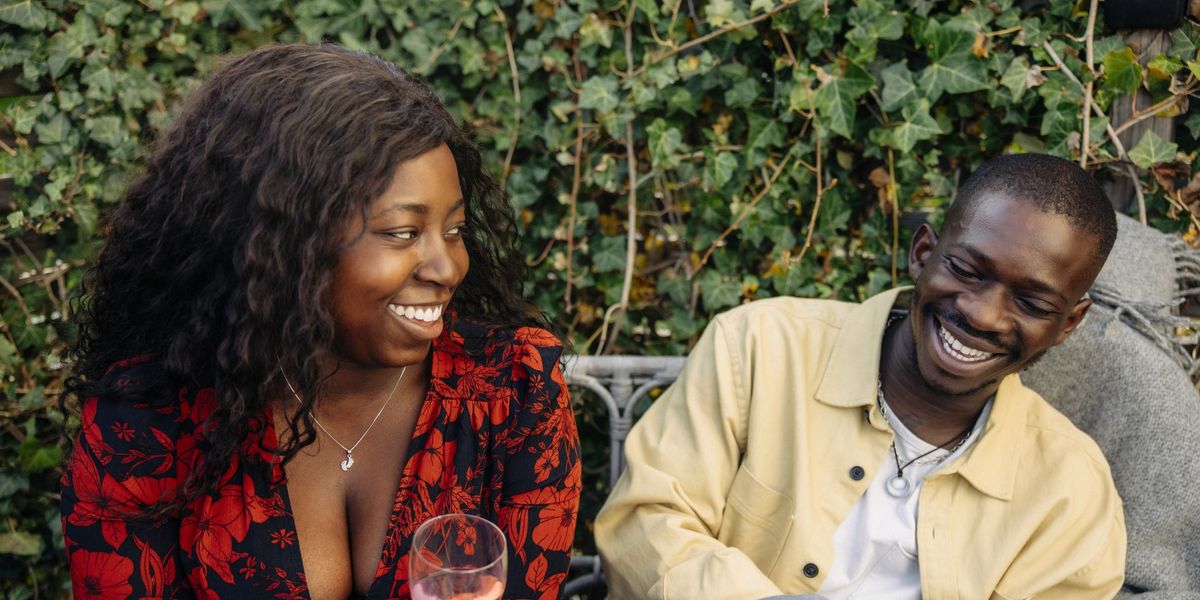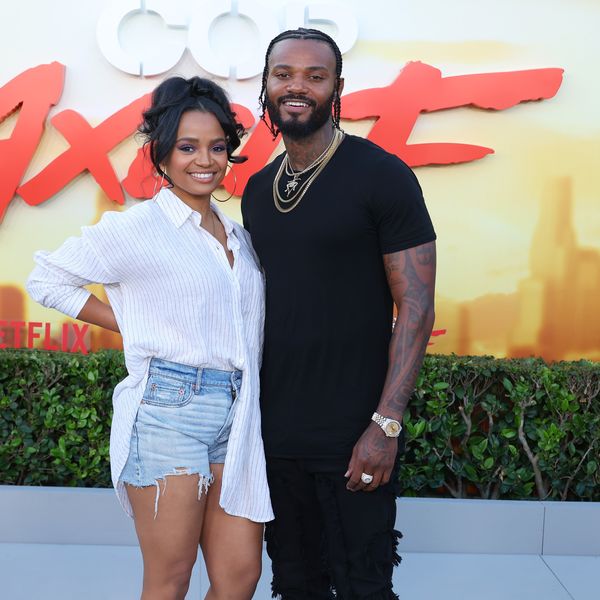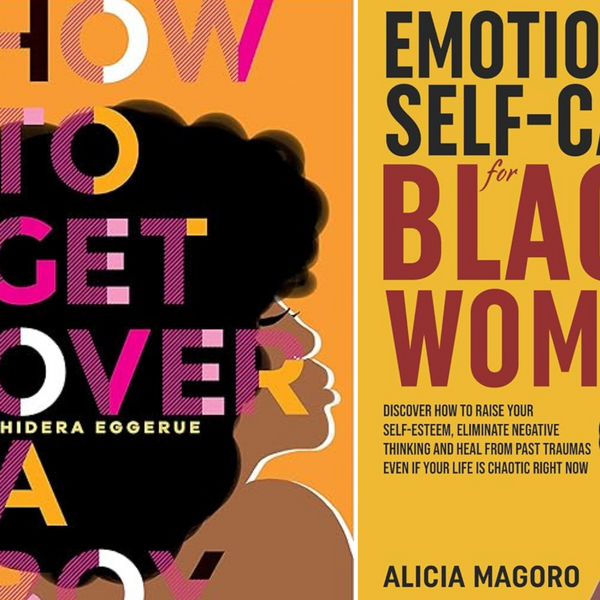
How To Discover What Your Dating Needs Are, According To An Expert
It's no secret that the dating scene is different from our parents' generation, so as a hopeful romantic, many parts of me feel like I was born in the wrong lifetime. My mother often says that she feels like my husband will be a bit older than me; perhaps that was her way of telling me that she hopes I find someone more mature. But these days, between the countless podcasts debating gender roles and discussions online of who brings what to the table, finding your person can feel hopeless.
Still, people are finding love every day, so how can we go from being amongst the brokenhearted and nonbelievers? How can we get to the meat of what our needs truly are to find the love we've been searching for? Beverley Andre, Licensed Marriage and Family Therapist says that the key is getting out of your own way.
Q: How can we get in our own way when it comes to relationships?
A: We get in our own way in relationships by having rigid expectations that make it difficult or impossible for someone to meet. I know this is a hot topic regarding having and maintaining standards, but there’s a fine line between reasonable expectations and creating a barrier that is nearly impossible to break through.
You have to assess the standards and see if they are genuinely in protection of you and maintain the standard of how you want to be treated, or are the standards fueled by fear and what you're really trying to do is avoid feeling hurt and disappointed, so you create this cycle where you set impossible standards that no one can meet, therefore limiting the possibility of close intimate relationships, leaving you feeling lonely and frustrated.
Q: In this dating age and era, how can we determine what our needs are versus our wants?
A: Your needs are tied to the core values and belief systems, while the wants are personality and lifestyle considerations, so I recommend creating a list of both. Identify your core values early on because those are your principles and qualities that matter most to you in a relationship. Those values are fundamental to your overall well-being. For example, do you want to be with someone who wants children, has integrity, and aligns on finances? Your values should be your deal-breakers that weed out people who are not in alignment.
For wants, think of physical, personality, and lifestyle traits that aren’t necessarily deal-breakers, aren’t tied to someone’s core traits, and don’t compromise your mental wellness. For instance, enjoying 100% of the same interests, specific physical attributes, and shared cultural background. As an extra measure, I recommend discussing your needs and wants with a trusted inner circle and getting their feedback. An inner circle should give you fair feedback instead of just agreeing with it because they’re within the inner circle.
"Your needs are tied to the core values and belief systems, while the wants are personality and lifestyle considerations."
Q: Are there fundamental needs that everyone should have or has on some level in romantic partnerships?
A: Yes, to be seen and heard. No one wants to be in a romantic partnership where they feel invisible, and their needs are met with consistent resistance just because it’s different from their partner. One of the core issues I see with couples is their inability to make space for their partner’s voice and influence. They find it difficult to see the value in what their partner is saying, especially if it contradicts their thoughts and opinions. Therefore, they register it as not being good enough and lacking merit and then get into a cycle where they inadvertently want their partner to change their minds and prove to them why they have a point.
Q: What are different examples of needs that everyone has?
A: Respect, open communication, similar values, sexual chemistry, and feeling safe emotionally and physically.
Q: How can we get to the meat of what our needs are so we can in turn get better at communicating what our needs are from an empowered place versus a disempowered one?
A: Identify your unmet childhood needs and heal them. I often see people trying to heal these wounds in relationships with people who aren’t responsible for creating them or fixing them. You can communicate your needs from an empowered and healthy place if you’re not starving. Getting to the meat of your needs will require self-exploration, curiosity, and patience to understand why the need is even a need.
"Identify your unmet childhood needs and heal them. You can communicate your needs from an empowered and healthy place if you’re not starving."
Q: What do you find your clients who are succeeding in relationships have done differently in explaining their needs to their partner?
A: They have done the self-work and healing to know their needs through individual and/or couple’s therapy. Most of the clients I’ve worked with never had the space to develop their thoughts around their needs. They’ve adopted their needs based on what they’ve seen in their personal lives from family growing up, movies, and now social media. Until you have a healthy relationship with yourself, where you’ve identified your needs and are meeting them, it isn’t easy to have that with someone else. You can’t communicate and give what you don’t know and have.
Let’s make things inbox official! Sign up for the xoNecole newsletter for daily love, wellness, career, and exclusive content delivered straight to your inbox.
Featured image by Maskot/Getty Images
- Tailor Your Love Life To Meet Your Needs With The Help Of This Viral Dating Practice ›
- The Classy Way To End A Relationship ›
- Here’s Why You KEEP Not Getting What You Need In Your Relationships ›
- What If You Love Him But Your Needs Keep Not Being Met? ›
Dubbed one of the "21 Black Women Wellness Influencers You Should Follow" by Black + Well, Yasmine Jameelah continues to leave her digital footprint across platforms ranging from Forever 21 Plus, Vaseline, and R29 Unbothered discussing all things healing and body positivity. As a journalist, her writing can be found on sites such as Blavity, Blacklove.com, and xoNecole. Jameelah is also known for her work shattering unconventional stigmas surrounding wellness through her various mediums, including her company Transparent Black Girl. Find Yasmine @YasmineJameelah across all platforms.
This article is sponsored by Hulu.
UnPrisonedhas returned for its highly anticipated second season, delving deeper into the complex dynamics of the Alexander family.
The series premiere comes a year after its debut season garnered rave reviews from fans and critics and earned record-breaking ratings for Hulu's Onyx Collective brand. UnPrisoned's success can be attributed to its raw, relatable themes and comedic appeal.
Inspired by creator Tracy McMillan's life, the show follows Paige (Kerry Washington), a therapist and single mother whose life takes an unexpected turn when her father, Edwin (Delroy Lindo) --who was released from prison-- moves in with her and her teenage son, Finn (Faly Rakotohavana).
Throughout UnPrisoned's first season, viewers witnessed how Edwin's incarceration deeply affected Paige's life and relationships. In the series, Paige unpacks her trauma through interactions with her inner child and her online followers. Meanwhile, Edwin is overcoming specific struggles with his own past that led to his life of crime, including a dysfunctional upbringing and his mother's arrest. As the Alexanders attempt to reconcile, new challenges arise.
This new season promises to further explore their unconventional family dynamic. Here are several compelling reasons why season two of UnPrisoned should be on everyone's watchlist.
The Alexander Family Life Is Still In Shambles
UnPrisoned's second season resumes where the series left off, with Paige grappling with the fallout from her troubled therapy practice and Edwin navigating life independently after moving out. Meanwhile, Finn faces his own challenges. The teenager is battling anxiety and seeking information about his father—a topic Paige avoids discussing.
The Alexander Family Are Attending Therapy To Resolve Their Underlying Issues
Amid the chaos in their lives, the Alexander family decides to mend their bond by confronting their past traumas. They seek professional help and attend therapy sessions with a “family radical healing coach,” played by John Stamos, a new cast member. This collective effort aims to unravel the complexities of their shared history and strengthen their relationships.
The process of unraveling each character's internal conflicts and their potential impact on future relationships may clash with Paige's textbook therapy approach. While Paige is used to being in the therapist's seat in both career and family, this forces her into the unfamiliar role of a patient during therapy sessions. This shift would compel her to look in the mirror and try a radically different approach.
The Alexander Family Learned A Big Lesson During A Therapy Session
In therapy, the Alexanders are tasked with addressing their individual traumas to salvage their remaining relationships. One of the family therapist’s eccentric suggestions was an exercise involving a family wrestling match. During this session, Paige faces tough questions about her refusal to share information about Finn's father.
While it's unclear whether this scene is reality or fantasy, the image of the family duking it out in the ring certainly makes for hilarious yet compelling television.
Paige Tries Dating Again Following Failed Relationships
Amid her life's chaos, Paige decides to step back into the dating field. However, her many attempts have left her with mixed results. The dating apps have turned out to be a fail, and an outing with her ex Mal (Marque Richardson), who is also her father's parole officer, doesn’t go quite as expected after he brings an unexpected guest – his new girlfriend.
The situation takes an awkward turn when Mal's new partner learns why the former couple split, partly due to Paige's self-sabotage.
UnPrisoned Is A Perfect Balance Of Comedy And Drama
As a dramedy, UnPrisoned takes a comedic approach to its heavy subjects. The show takes us on a ride with Paige's dating misadventures and navigating a friendship with her ex.
Other lighthearted moments include Edwin's attempts at CPR based on online videos and, of course, the antics of the Alexander family's unconventional new healing coach.
The second season of UnPrisoned is now available on Hulu.
UnPrisoned | Season 2 Trailer | Hulu
Feature image courtesy
Mariee Revere On Her History-Making Million-Dollar Sales And The Future Of MoonXCosmetics
If the name Mariee Revere sounds familiar, it's probably because you heard of her beauty and skincare brand, MoonXCosmetics, or you may have heard about her history-making achievement of making $1.8 million in less than eight minutes. But before starting her million-dollar brand, Mariee was just a teenager trying to cure her acne.
While she grew up in the skincare capital of the world, South Korea, Mariee didn't really experience breakouts until her senior year of high school. Like many people who get their first breakout, she didn't know what to do, and there weren't many products out there at that time. So she decided to experiment. What she didn't know was that what she came up with would ultimately be her ticket to success.
"When I graduated high school, I moved back to America, Georgia, and I ended up making, like, the oil, the Rose Galore oil, which is like the staple product of my brand. I don't know what made me make it, but I did, and it literally cleared my face up," she tells xoNecole in an exclusive interview.
"I end up selling it as a body oil first because, obviously, I'm 17, [and] don't have any background as an esthetician or anything like that. I just made a product that worked for me, but people bought it and was using it, and I reformulated it, and then it just stuck like with me."
While MoonXCosmetics is known for its facial products, it wants to expand to body care and home. It just released its new product, Moon-Gel body wash, and it's only up from there. As Mariee continues to grow the brand, it's more than likely that she will see more history-making moments. And so far she has.

Photo courtesy
When asked if she feels pressure to obtain more of those milestones, she says yes and no. "I did $1.8 [million] again, and then I did $2 million but I feel like now, currently, I don't look at that as one of my goals anymore because [of] the headache and just everything that came with it, but I was thankful and blessed to have that milestone, but now I'm looking for more," she says.
"I want to say more reach than more like fast-paced sales. I do want that. Obviously, every girl wants that, but I do want to have a better overall reach for my brand because I did take two years off so I was able to learn, [and] study a lot of different things. See how things have changed from 2020 to now."
"I did $1.8 [million] again, and then I did $2 million but I feel like now, currently, I don't look at that as one of my goals anymore because [of] the headache and just everything that came with it, but I was thankful and blessed to have that milestone, but now I'm looking for more."
Another part of expanding for any company is hiring people. Finding the right person to help you can be a hassle, especially for business owners who are used to doing all the work themselves. Mariee can relate to this, and she touched on this topic in her documentaryThe Million Dollar Story. She recommends having someone be your "right-hand man" who you trust to handle the ins and outs of the company.
"I could say, definitely get, like a right-hand man to help you within the process because that really was what helped me. I never had a job. I literally was 18 now, being like, you know, the boss of over 30+ employees at one point in time, and I didn't know anything. I didn't know anything about no W-2s, no taxes, no clock in, clock out because all I [have] ever known was my brand," she explains.
"So I definitely partner with people who are very skewed and versed in those areas, and they helped me get through it. Even to this day, I still have my same person helping me with hiring, firing, [and] doing everything that I can right now because I'm still learning. But obviously people get jobs young, so they have way more experience than me, but still learning."
And though she is still learning, one thing she makes sure to stay on top of is being consistent. Consistency is what trips many people up when it comes to achieving goals, but Mariee says it's all about scheduling. Whether it's when to post on social media or email marketing, scheduling it out can make a world of difference. That same practice also works when planning out her future goals for the company.
"Right now, future goals would be to drop at least five more products before the end of the year. We always do outreach, where we do drives and all that, but definitely do way more this year, she says. "Then really dive into body [care], and then hopefully open up MoonXBody underneath MoonXCosmetics to let that branch out and be open and definitely get back consistent."
For more information, visit moonxco.com.
Let’s make things inbox official! Sign up for the xoNecole newsletter for love, wellness, career, and exclusive content delivered straight to your inbox.
Feature image courtesy











